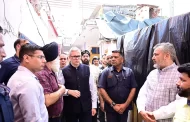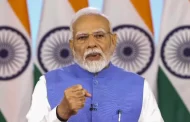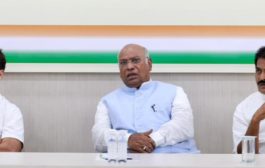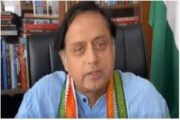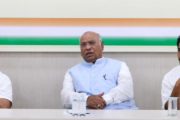Almost an hour after Prime Minister Narendra Modi’s blog, which slams Congress’ dynastic “family-first” politics, went online, former Union minister, senior advocate and Congress leader Kapil Sibal was ready with a counter-charge. Sibal said that Modi, too, is a dynast, so is Amit Shah, so are chief ministers of BJP-ruled states and host of Centre and state-level ministers. Sibal said, Sangh Parivar is the biggest dynasty in India and since all these leaders have had their rooting in the RSS, they all qualify to be dynasts.

File image of Narendra Modi. Reuters
Ironically, the accusation comes from a top ranking minister, who held portfolios of Law and Justice, Human Resource Development, Communication and Information Technology, Science and Technology and Earth Sciences during the UPA regime. Sibal also continues to be a close confidante of Congress chief Rahul Gandhi and UPA chairperson Sonia Gandhi.
Another Congress leader Tariq Anwar argued that Modi’s ‘dynastic’ jibe against Nehru-Gandhi family was manifestation of sour grapes scenario. Modi was slamming Congress over dynastic rule because prime minister himself did not have any lineage to boast about.
#WATCH Tariq Anwar, Congress on PM Modi's tweet, says, "Narendra Modi Ji is saying this as he does not come from a dynasty. How can one who who does not come from a dynasty say this? Tell me one profession where dynasty is not encouraged." pic.twitter.com/HHtjwXD12Z
— ANI (@ANI) March 20, 2019
Rahul Gandhi, addressing a rally at Imphal, questioned Modi’s educational qualification.
Rahul Gandhi interacting with students in Imphal:We still have not had access to PM's university degree.Nobody actually knows whether the Prime Minister went to a university or not. There is an RTI filed in Delhi asking for PM's university degree but it has not been responded to. pic.twitter.com/mGzwmahmxR
— ANI (@ANI) March 20, 2019
Rahul is alleging as Aam Admi Party chief and Delhi chief minister Arvind kejriwal, despite the fact that both, the Delhi University and the BJP, have clarified that the prime minister joined university through correspondence course and got degree from the university. Modi’s blog evoked several strong reactions, especially from the Congress.
“In the summer of 2014, the people voted decisively for:
Honesty over dynasty.
Development over decay.
Security over stagnation.
Opportunities over obstacles.
Vikas over vote-bank politics… The mandate of 2014 was epoch-making also because it was for the first time in the history of India that a non-dynastic party was blessed with a complete majority.”
Modi opened his blog with these lines.
The prime minister also made a point by point rebuttal to his political rivals and critics charge that there was an unrelenting attack on institutions under his regime. In the blog, Modi details how it was Congress party and it’s “first family” which undermined and targeted institutions — constitutional, statutory and otherwise. To the charge that his regime is the one throttling freedom of speech and intolerant to dissent, Modi said it was actually the Congress which believed in curbing freedom of expression.
“Dynastic parties have never been comfortable with a free and vibrant press. No wonder, the very first Constitutional Amendment brought in by the Congress government sought to curtail free speech. The recent UPA years saw the bringing of a law that could land you in prison for posting anything ‘offensive’. A tweet against the son of a powerful UPA minister could land innocent citizens in jail. Just a few days ago, the nation watched with horror when a few youngsters were arrested for expressing their true feelings at a programme in Karnataka, where the Congress is sharing power.”
The prime minister referred to the incident at Rahul’s rally in Karnataka where a few youngsters, who were allegedly Modi supporters, were taken into custody for chanting pro-Modi slogans. Modi listed out institutions press, judiciary, armed forces, governmental institutions, constitutional and investigative bodies to narrate how Congress party treated them. Emergency imposed by Indira Gandhi in 1975 was highlighted in detail.
“When the sun set on the evening of 25th June 1975, it took with it the democratic ethos of India. A hurried radio address by the then Prime Minister showed the extent to which the Congress can go to safeguard the interests of one dynasty. The Emergency made the nation a prison overnight. Even to express was to commit sin. The 42nd Amendment put curbs on the courts, covering the Parliament and more. It took a groundswell of public opinion to end the Emergency but the anti-constitutional mindset of those who imposed it remained. The Congress has imposed Article 356 almost a hundred times, with Mrs. Indira Gandhi herself doing so about fifty times. If they did not like a state government or leader the government was dismissed. Congress’ contempt for the courts is anyway legendary. It was Mrs. Indira Gandhi who called for a “committed judiciary”, which seeks to make the courts more loyal to a family than to the Constitution”
Modi has given talking points to his party workers and supporters to counter charges alleged by the Congress and other parties in the run up to Lok Sabha election.
source: Firstpost.com



